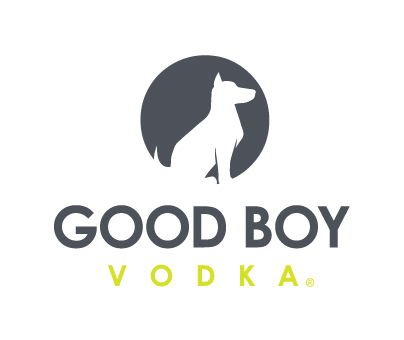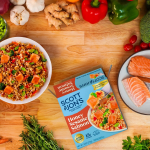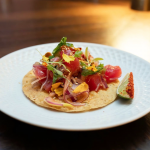The Checkout: Immi Raises $3.8M; PepsiCo Launches Pep+ Sustainability Initiative
Welcome to The Checkout: an express lane for weekly news you need to know, always 10 items or less.
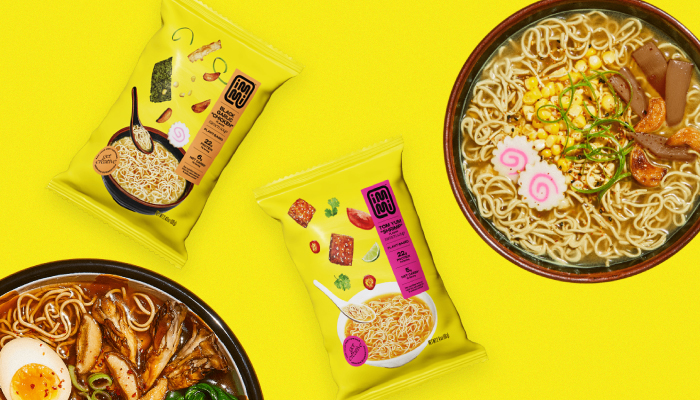
Better-For-You Ramen Maker Immi Reformulates, Announces Raise
Asian American food brand Immi this week disclosed it had raised a total of $3.8 million in funding (a portion of which was closed last year) that the company will use to increase manufacturing and production for its plant-based ramen and to launch new innovations.
An SEC filing in March reported the close of roughly $2.5 million in funding. The company had previously told NOSH in December that it had already raised a “seed round” of funding but declined to disclose the amount raised at that time. Across the total amount raised, Siddhi Capital was the lead investor, with Palm Tree Crew, Constellation Capital, Pear Ventures, Animal Capital and Collaborative Fund also taking part. Individual investors included Patrick Schwarzenegger, Kat Cole and Sharma Brands CEO Nik Sharma along with the CEOs or co-founders from a number of companies such as Thrive Market, Caviar, Daring Foods, Madhappy, Twitch, Kettle & Fire, MUD\WTR, Native, Tatcha and Casper.
Melissa Facchina, general partner and co-founder at Siddhia Capital, said Immi served as an attractive investment opportunity as it bring[s] “international and diverse flavors to a new audience.”
“As consumer preferences continue to shift toward better-for-you offerings that do not compromise on flavor, immi is perfectly positioned to reinvent a category that’s yet to see true innovation,” she said.
Sold direct-to-consumer for $40 per six-pack, Immi’s instant ramen uses plant-based bases made from pumpkin seed protein and wheat and is available in flavors such as Spicy “Beef,” Black Garlic “Chicken” and Tom Yum “Shrimp.”
The brand also announced it had reformulated its products to improve the taste, texture and “slurpability,” as well as increase fiber content and lowering net carbs. The line now has roughly 21 grams of protein (down from 31 grams) and nine grams of fiber (down from roughly 19 grams). Immi also said it had removed “an ingredient causing noodle and soup tartness.” The company said since its debut in January, it has fulfilled orders for 4,000 consumers — at the time of its launch in January, the company touted a 35,000 person wait list. Initially launched as a keto ramen, the brand now seeks to target more everyday eaters, Immi co-founder Kevin Chanthasiriphan said.
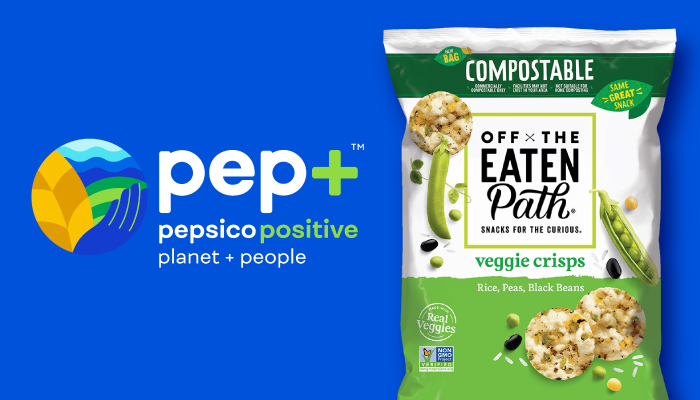
PepsiCo Launches Pep+ Sustainability Plan
PepsiCo this week debuted pep+ (pep positive), a suite of new sustainability initiatives the company has established across business operations, ingredient sourcing and production.
The initiative consists of three pillars: Positive Agriculture, Positive Value Chain and Positive Choices. Notable goals within these pillars include supporting regenerative agriculture practices among ingredient suppliers; introducing sustainable packaging, with plans to cut virgin plastics across its global food and beverage portfolio in half by 2030; and diversifying its ingredients. The company said it plans to prioritize ingredients like chickpeas, plant-based proteins and whole grains, expand its positions in the nuts and seeds category and reduce added sugars and sodium across its portfolio.
“pep+ is the future of our company – a fundamental transformation of what we do and how we do it to create growth and shared value with sustainability and human capital at the center,” Ramon Laguarta, PepsiCo’s chairman and CEO, said in a press release. “It reflects a new business reality, where consumers are becoming more interested in the future of the planet and society.”
Laguarta said the new platform will “change our brands and how they win in the market.” For example, the company plans to produce Lay’s using potatoes grown on regenerative fields, produced through a net zero and net water positive supply chain and packaged in a compostable bag. The company will also debut compostable packaging for its snack brand Off The Eaten Path, which will debut at Whole Foods store this month. PepsiCo said it would work with other companies to license the technology to produce this packaging at no cost, “given the importance of creating a circular food packaging system.”
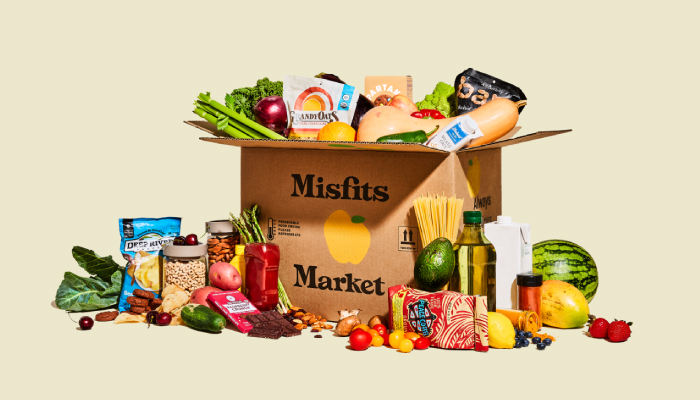
Misfits Market Closes $225M Series C-1
Sustainable online grocery platform Misfits Market closed a $225 million series C-1 funding round this week led by SoftBank Vision Fund, with participation from Accel. Softbank partner Lydia Jett has joined the company’s board of directors as part of the deal.
The new funding follows a $200 million round closed in April, and brings its valuation to $2 billion and total capital raised to date to $526.5 million.
Misfits Market said it plans to use the funding to grow its product selection into new categories. The company has doubled its offerings over the last four months, and launched meat, seafood and plant-based proteins on the site earlier this summer, opening a warehouse in Dallas, Texas to support this launch.
“We have seen tremendous growth in 2021 and still have a number of grocery categories lined up and ready to be introduced to the Misfits Market ecosystem,” CEO and founder Abhi Ramesh said in a press release. “We’ve been laser focused on building our food value supply chain and this capital infusion enables us to deploy it nationwide and continue realizing our vision for a better grocery experience.”
The new capital will also be used to support its nationwide expansion, the company said, with Misfits Market currently serving 43 states.

MeliBio Secures Funding From CULT Food Science
MeliBio, a food tech startup making honey without the use of bees, has received investment for an undisclosed amount from CULT Food Science. The investment follows the California-based company’s $850,000 seed round in April and will support the production of its lab grown honey, which MeliBio plans to launch in the first half of 2022.
Canadian-based investment firm CULT Food Science has placed several investments in the cell-cultured meat and dairy space over the last few months, investing in companies such as Mogale Meat, Biftek and Novel Farms. The addition of lab grown honey will further diversify its portfolio, the company said, believing that “the future of food will be science-based,” CULT CEO Dorian Banks said.
“In addition to pursuing lab-grown meat and cultured dairy investments, our team is diligently working to identify and deploy capital to the most innovative early-stage companies across the entire lab grown food ecosystem,” Banks said. “The MeliBio team has an unrivalled expertise and passion, and we are thrilled to be able to support their mission of pioneering sustainable honey.”








